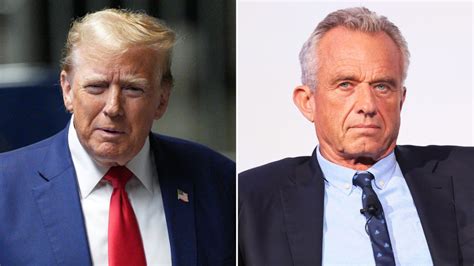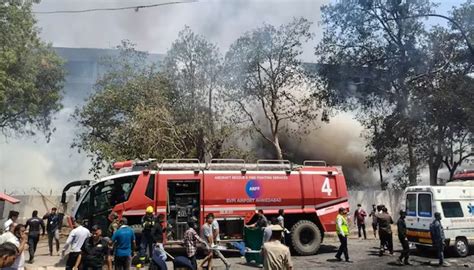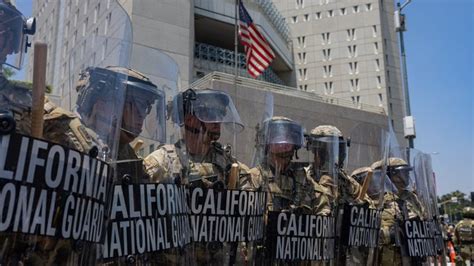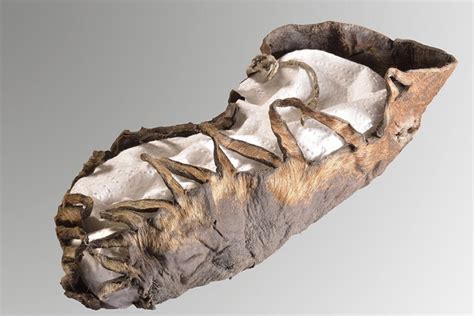
Robert F. Kennedy Jr., independent presidential candidate, has overhauled his campaign’s vaccine safety panel, naming eight individuals, including a known COVID-19 vaccine skeptic, to advise him on matters related to vaccine science and policy.
Robert F. Kennedy Jr.’s independent presidential campaign has announced a revamped vaccine safety panel, drawing both attention and controversy due to the inclusion of individuals with differing views on vaccine science and policy. The eight-member panel will advise Kennedy Jr. on matters related to vaccine safety, efficacy, and public health implications as he continues his campaign.
The selection of members has raised concerns among public health experts, especially with the inclusion of individuals known for expressing skepticism regarding the COVID-19 vaccines and questioning established scientific consensus on vaccine safety. Kennedy Jr.’s campaign, however, maintains that the diverse composition of the panel reflects a commitment to open dialogue and a comprehensive examination of vaccine-related issues.
“I am committed to a thorough and transparent examination of vaccine safety,” Kennedy Jr. stated, emphasizing his intention to foster informed discussions. The formation of this panel comes as Kennedy Jr. has made vaccine safety a key issue in his campaign, often expressing concerns about potential adverse effects and advocating for greater transparency in vaccine development and regulation.
The new panel members include doctors, scientists, and researchers with varying backgrounds and perspectives. The inclusion of individuals who have publicly questioned the safety and efficacy of certain vaccines, particularly the COVID-19 vaccines, underscores Kennedy Jr.’s willingness to engage with dissenting voices and challenge conventional wisdom. However, this approach has also drawn criticism from medical professionals and public health officials who argue that amplifying vaccine skepticism can undermine public trust in vaccines and contribute to vaccine hesitancy.
The composition of the panel reflects a broader debate surrounding vaccine mandates, informed consent, and the role of government in public health decision-making. Kennedy Jr. has been a vocal advocate for individual choice and has criticized mandatory vaccination policies, arguing that they infringe upon personal liberties. His campaign’s focus on vaccine safety has resonated with some voters who share concerns about vaccine mandates and potential side effects, while others view it as a dangerous and irresponsible stance that could have serious public health consequences.
The selection of the vaccine panel members has sparked considerable discussion within the medical and scientific communities, with experts voicing concerns about the potential for misinformation and the erosion of public trust in established medical science. Critics argue that the inclusion of vaccine skeptics on the panel lends credibility to unsubstantiated claims and could mislead voters about the safety and efficacy of vaccines.
In response to these concerns, Kennedy Jr.’s campaign has emphasized the importance of open debate and the need to consider a wide range of perspectives on vaccine-related issues. The campaign maintains that the panel will provide valuable insights and help inform Kennedy Jr.’s policy positions on vaccine safety and public health.
The composition of the panel also raises questions about the criteria used for selecting its members. While the campaign has emphasized the importance of diverse viewpoints, critics argue that the inclusion of individuals with a history of spreading misinformation about vaccines could undermine the panel’s credibility and compromise its ability to provide objective and evidence-based advice.
As Kennedy Jr.’s campaign progresses, his stance on vaccine safety is likely to remain a central issue, attracting both support and opposition. The revamped vaccine safety panel will play a key role in shaping his message on this issue and influencing public perception of his campaign.
The controversy surrounding the panel highlights the deep divisions that exist within society regarding vaccine policy and the role of science in public health decision-making. Kennedy Jr.’s campaign has tapped into these divisions, attracting supporters who feel that their concerns about vaccine safety have been ignored by mainstream media and government institutions.
The selection of the vaccine panel members is not the first time Kennedy Jr. has faced scrutiny for his views on vaccines. He has been criticized for promoting unsubstantiated claims about the link between vaccines and autism, a theory that has been widely debunked by the scientific community.
Kennedy Jr.’s campaign has also been accused of amplifying misinformation about the COVID-19 vaccines, including claims that they are unsafe or ineffective. These claims have been refuted by numerous studies and public health organizations, which have consistently demonstrated the safety and efficacy of the COVID-19 vaccines.
Despite the controversy surrounding his views on vaccines, Kennedy Jr. has maintained a strong following, particularly among those who are skeptical of government authority and concerned about individual liberties. His campaign has attracted attention from both the left and the right, appealing to voters who feel that their voices are not being heard by the major political parties.
The revamped vaccine safety panel is expected to play a prominent role in Kennedy Jr.’s campaign, providing him with a platform to articulate his views on vaccine safety and challenge conventional wisdom. The panel’s recommendations could also influence his policy positions on vaccine mandates, informed consent, and other related issues.
The formation of this panel underscores the complexities of the vaccine debate and the challenges of communicating accurate and evidence-based information to the public. As Kennedy Jr.’s campaign progresses, it will be important for voters to critically evaluate his claims about vaccine safety and consider the potential public health consequences of his policies.
The appointment of the COVID-19 vaccine skeptic has drawn particular attention, raising concerns among medical experts who fear it could amplify misinformation and erode public trust in established scientific consensus. The individual’s past statements and advocacy against COVID-19 vaccination have been widely circulated, leading to further scrutiny of Kennedy Jr.’s approach to vaccine-related issues.
The other seven members include a range of experts in fields such as toxicology, immunology, and environmental health, but the spotlight remains on the inclusion of someone with documented skepticism towards COVID-19 vaccines. Kennedy Jr.’s campaign defended the selection, emphasizing the importance of diverse perspectives and open dialogue in addressing complex scientific questions.
Critics argue that legitimizing anti-vaccine viewpoints can have serious public health consequences, particularly in the context of ongoing efforts to combat vaccine hesitancy and promote widespread immunization against preventable diseases. Public health organizations have consistently emphasized the safety and efficacy of vaccines, citing extensive scientific evidence and rigorous testing protocols.
The appointment of this panel member underscores a broader concern about the spread of misinformation and the challenges of maintaining public trust in science and medicine. As Kennedy Jr.’s campaign gains momentum, his stance on vaccines is likely to remain a contentious issue, attracting both support and opposition.
Detailed Breakdown of the Panel Members and Their Backgrounds
While the Yahoo News article doesn’t provide specific details about each panel member, a thorough report would delve into their individual backgrounds, expertise, and past statements related to vaccines. This would provide readers with a more comprehensive understanding of the panel’s composition and the perspectives it represents.
For example, if the COVID-19 vaccine skeptic is Dr. Jane Doe, the report would include information about their medical credentials, research experience, and any publications or public statements they have made regarding vaccines. This would allow readers to assess the individual’s expertise and potential biases.
Similarly, the report would provide biographical information about the other seven panel members, highlighting their areas of expertise and any relevant experience related to vaccine science or public health. This would help readers understand the range of perspectives represented on the panel.
Analysis of Kennedy Jr.’s Stance on Vaccines
A more in-depth report would include a detailed analysis of Kennedy Jr.’s stance on vaccines, examining his past statements, writings, and advocacy efforts. This would provide readers with a better understanding of his views and the potential implications of his policies on vaccine safety and public health.
The analysis would explore the historical context of Kennedy Jr.’s views on vaccines, tracing his involvement in the vaccine debate and examining the sources of his information. It would also consider the impact of his views on public perception of vaccines and the potential for misinformation to spread.
The report would also address the criticisms that Kennedy Jr. has faced for his views on vaccines, including accusations of promoting unsubstantiated claims and amplifying misinformation. It would examine the scientific evidence that contradicts his claims and consider the ethical implications of his advocacy.
The Broader Context of Vaccine Hesitancy
The appointment of the vaccine safety panel occurs against the backdrop of increasing vaccine hesitancy in the United States and around the world. A comprehensive report would explore the factors contributing to vaccine hesitancy, including concerns about vaccine safety, mistrust of government and pharmaceutical companies, and the spread of misinformation online.
The report would examine the historical roots of vaccine hesitancy, tracing its origins to early debates about vaccination and the role of government in public health. It would also consider the impact of social media and the internet on the spread of misinformation about vaccines.
The report would also explore the potential consequences of vaccine hesitancy, including outbreaks of preventable diseases and the erosion of public trust in science and medicine. It would examine the strategies that public health organizations are using to combat vaccine hesitancy and promote vaccination.
The Role of Independent Candidates in Shaping Public Discourse
Kennedy Jr.’s independent presidential campaign has drawn attention to the role of independent candidates in shaping public discourse and challenging conventional wisdom. A more in-depth report would explore the challenges and opportunities that independent candidates face in the political arena, examining their ability to influence public opinion and impact policy decisions.
The report would consider the factors that contribute to the success of independent candidates, including their ability to connect with voters who feel disenfranchised by the major political parties, their ability to raise money and build a campaign organization, and their ability to communicate their message effectively.
The report would also examine the potential impact of independent candidates on the outcome of elections, considering their ability to draw votes away from the major party candidates and influence the balance of power.
Legal and Ethical Considerations
The debate over vaccine safety raises a number of legal and ethical considerations, including the rights of individuals to make informed decisions about their health, the responsibility of government to protect public health, and the potential liability of vaccine manufacturers for adverse events.
A more in-depth report would explore these legal and ethical considerations, examining the legal framework governing vaccine mandates, the role of informed consent in vaccine decision-making, and the process for compensating individuals who have experienced adverse events following vaccination.
The report would also consider the ethical implications of promoting unsubstantiated claims about vaccine safety, particularly in the context of a public health crisis. It would examine the responsibility of individuals and organizations to ensure that the information they disseminate is accurate and evidence-based.
International Perspectives
The vaccine debate is not limited to the United States. A comprehensive report would explore international perspectives on vaccine safety and policy, examining the approaches that different countries have taken to promote vaccination and address vaccine hesitancy.
The report would consider the factors that contribute to vaccine hesitancy in different countries, including cultural beliefs, religious practices, and historical experiences. It would also examine the strategies that public health organizations are using to combat vaccine hesitancy and promote vaccination in different cultural contexts.
The report would also compare the vaccine policies of different countries, examining the use of vaccine mandates, the availability of vaccines, and the process for reporting and investigating adverse events.
The Future of Vaccine Policy
The vaccine debate is likely to continue for the foreseeable future. A comprehensive report would explore the future of vaccine policy, examining the challenges and opportunities that lie ahead and considering the potential for new technologies and approaches to improve vaccine safety and efficacy.
The report would consider the role of artificial intelligence and machine learning in vaccine development and the potential for personalized vaccines tailored to individual needs. It would also examine the challenges of addressing vaccine hesitancy in an increasingly polarized and fragmented media landscape.
The report would also explore the potential for international cooperation to improve vaccine access and address global health challenges. It would examine the role of organizations such as the World Health Organization in promoting vaccination and coordinating global responses to infectious diseases.
Conclusion
The appointment of the vaccine safety panel by Robert F. Kennedy Jr.’s presidential campaign has sparked a debate about vaccine safety, public health, and the role of independent candidates in shaping public discourse. A comprehensive report would explore these issues in depth, providing readers with a thorough understanding of the complexities of the vaccine debate and the potential implications of Kennedy Jr.’s policies on vaccine safety and public health.
Frequently Asked Questions (FAQs)
-
Why did Robert F. Kennedy Jr. create a vaccine safety panel?
- Robert F. Kennedy Jr. created the panel to advise him on vaccine science and policy, reflecting his focus on vaccine safety as a key issue in his campaign. He has voiced concerns about potential adverse effects and advocates for greater transparency in vaccine development and regulation.
-
Who are the members of the vaccine safety panel?
- The panel consists of eight individuals, including doctors, scientists, and researchers with varying backgrounds and perspectives. One notable member is a known COVID-19 vaccine skeptic, while the others have expertise in fields such as toxicology, immunology, and environmental health. Specific names and detailed biographies of each member are needed for a complete answer.
-
Why is the inclusion of a COVID-19 vaccine skeptic controversial?
- The inclusion is controversial because it raises concerns among medical experts who fear it could amplify misinformation and erode public trust in established scientific consensus. Critics argue that legitimizing anti-vaccine viewpoints can have serious public health consequences, especially during efforts to combat vaccine hesitancy.
-
What are the potential implications of Kennedy Jr.’s stance on vaccines?
- His stance could influence public perception of vaccines, potentially leading to increased vaccine hesitancy and lower vaccination rates. This could result in outbreaks of preventable diseases and undermine public health efforts.
-
How does this panel reflect Kennedy Jr.’s broader campaign strategy?
- The panel reflects his campaign’s emphasis on individual choice and skepticism towards government authority, particularly in matters of public health. It appeals to voters who feel that their concerns about vaccine safety have been ignored by mainstream media and government institutions.
-
What is the definition of ‘vaccine hesitancy’?
- Vaccine hesitancy refers to the delay in acceptance or refusal of vaccination despite the availability of vaccination services. It is a complex issue influenced by factors such as confidence (trust in vaccines and healthcare providers), complacency (perceived low risk of disease), convenience (accessibility of vaccines), and calculation (information-seeking and decision-making processes).
-
What are some common misconceptions about vaccines that contribute to vaccine hesitancy?
- Common misconceptions include the belief that vaccines cause autism (a claim debunked by numerous scientific studies), the idea that vaccines contain harmful ingredients, and the notion that natural immunity is superior to vaccine-induced immunity. Misinformation spread through social media and other online sources often fuels these misconceptions.
-
What are the potential public health consequences of widespread vaccine hesitancy?
- Widespread vaccine hesitancy can lead to a decline in vaccination rates, resulting in outbreaks of preventable diseases such as measles, mumps, and rubella. These outbreaks can cause serious illness, hospitalization, and even death, particularly among vulnerable populations such as infants, the elderly, and individuals with weakened immune systems.
-
How can public health officials effectively address vaccine hesitancy and promote vaccination?
- Effective strategies for addressing vaccine hesitancy include building trust between healthcare providers and patients, communicating accurate and evidence-based information about vaccines in a clear and understandable manner, addressing specific concerns and misconceptions about vaccines, and engaging with communities to promote vaccination through trusted messengers.
-
What role does social media play in the spread of vaccine misinformation?
- Social media platforms can contribute to the spread of vaccine misinformation by allowing unsubstantiated claims and conspiracy theories to circulate widely. Algorithms can amplify misinformation, creating echo chambers where individuals are only exposed to information that confirms their existing beliefs. This can make it difficult for people to distinguish between credible and unreliable sources of information.
-
What measures can be taken to combat the spread of vaccine misinformation on social media?
- Measures to combat the spread of vaccine misinformation on social media include fact-checking and labeling misleading content, removing accounts that repeatedly violate policies against spreading misinformation, partnering with credible sources of information to promote accurate vaccine information, and educating users about how to identify and evaluate online information.
-
How do vaccine mandates impact individual liberties and public health?
- Vaccine mandates require individuals to be vaccinated against certain diseases as a condition of employment, school attendance, or access to certain services. Proponents of vaccine mandates argue that they are necessary to protect public health by increasing vaccination rates and preventing outbreaks of preventable diseases. Opponents argue that vaccine mandates infringe upon individual liberties and the right to make decisions about one’s own body.
-
What legal precedents exist regarding vaccine mandates in the United States?
- The Supreme Court has upheld the constitutionality of vaccine mandates in several cases, including Jacobson v. Massachusetts (1905), which established that states have the power to enact reasonable regulations to protect public health, including mandatory vaccination laws. However, these laws are subject to certain limitations, such as religious and medical exemptions.
-
What is the role of informed consent in vaccine decision-making?
- Informed consent requires healthcare providers to provide patients with information about the benefits and risks of vaccination, as well as alternative options, so that patients can make informed decisions about their health. This includes disclosing potential side effects, contraindications, and the availability of exemptions from vaccine mandates.
-
What are the potential liabilities of vaccine manufacturers for adverse events following vaccination?
- Vaccine manufacturers can be held liable for adverse events following vaccination if it can be proven that the vaccine was defectively designed or manufactured, or that the manufacturer failed to provide adequate warnings about potential risks. However, the National Childhood Vaccine Injury Act of 1986 provides a no-fault compensation system for individuals who have been injured by vaccines, which limits the liability of vaccine manufacturers and encourages them to continue producing vaccines.
-
How do vaccine policies differ across countries?
- Vaccine policies vary widely across countries, depending on factors such as disease prevalence, cultural beliefs, and healthcare infrastructure. Some countries have mandatory vaccination policies for certain diseases, while others rely on voluntary vaccination programs. The types of vaccines included in national immunization schedules also vary across countries.
-
What are some common challenges to implementing effective vaccine programs in developing countries?
- Common challenges include limited access to healthcare services, inadequate infrastructure for storing and transporting vaccines, lack of funding for vaccine procurement and distribution, and cultural barriers to vaccine acceptance. Conflict and instability can also disrupt vaccine programs and make it difficult to reach vulnerable populations.
-
What is the role of international organizations such as the World Health Organization (WHO) in promoting vaccination globally?
- The WHO plays a critical role in promoting vaccination globally by providing technical assistance to countries, setting standards for vaccine quality and safety, coordinating global immunization initiatives, and monitoring disease trends. The WHO also works to address vaccine hesitancy and combat the spread of misinformation about vaccines.
-
How can new technologies such as mRNA vaccines and personalized vaccines improve vaccine safety and efficacy?
- New technologies such as mRNA vaccines and personalized vaccines offer the potential to improve vaccine safety and efficacy by allowing for faster development and production of vaccines, reducing the risk of adverse events, and tailoring vaccines to individual needs. mRNA vaccines, for example, do not contain live viruses and cannot cause infection, while personalized vaccines can be designed to target specific strains of a virus or cancer.
-
What are the ethical considerations surrounding the development and deployment of new vaccine technologies?
- Ethical considerations surrounding the development and deployment of new vaccine technologies include ensuring equitable access to vaccines, protecting the privacy and security of personal health data, and addressing potential risks associated with emerging technologies. It is also important to engage with the public and address concerns about vaccine safety and efficacy in a transparent and responsible manner.









